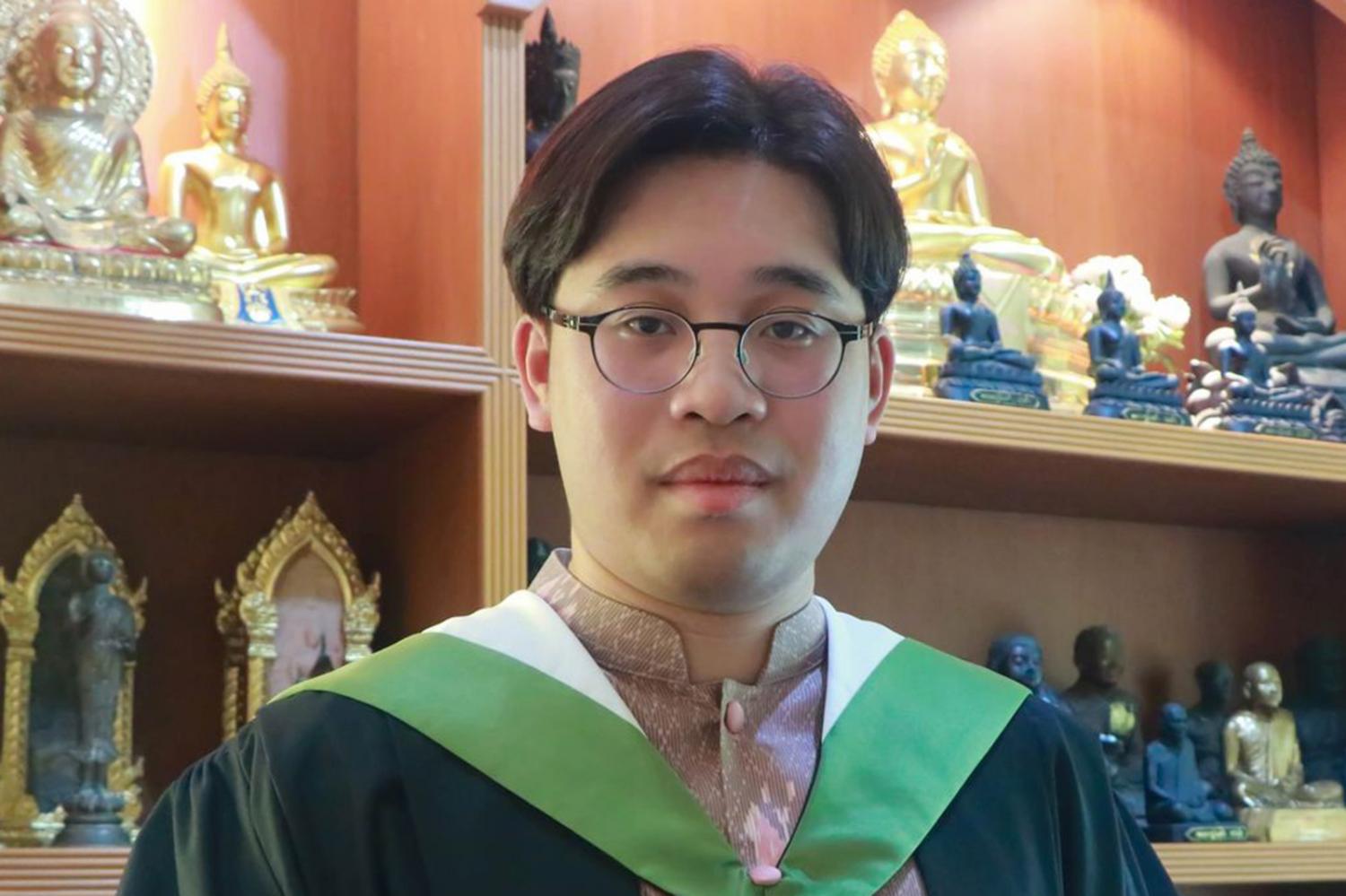
Ahead of the May 14 election, parties are outlining populist policies, with few bothering to spell out how they will fund them.
Since the Thai Rak Thai Party’s landslide victory in the 2001 general election, fuelled by populist policies such as universal healthcare, the One Tambon, One Product (Otop) initiative and low-cost housing schemes, populism has been a major theme in Thai politics. This year will be no different.
Nattanon Karnjanasilaroj, a former lecturer at the Institute of Diplomacy and International Studies and an expert in public policy and international relations, told the Bangkok Post that populist policies might be successful if a party has a long-term plan for funding them rather than just borrowing, which leaves the country with more debt.
Generally, these policies aim to raise people’s quality of life, enabling them to allocate savings in more productive areas, he said, citing the rice subsidy scheme under the Yingluck Shinawatra government, in which farmers sold rice at a higher price than the market price, providing them with additional funds to diversify.
“However, it comes at a very high cost,” he said, which can be addressed through a variety of approaches.
Sources of money
One approach is to fund such policies through the annual budget, he said, adding: “We can see an example of this in the efforts of the opposition party to reduce the budget for the military and ration the funds to other areas.”
Another approach is to raise taxes, he said, while stressing this has to be done in the right area.
Mr Nattanon said inflation is increasing thanks to the Russo-Ukrainian War, a shortage in consumer goods and a drop in farm product prices, which in his view makes it inappropriate to raise taxes on the working and middle classes.
“SMEs (small and medium size enterprises) are as affected by the global economic situation as the working class, and raising more taxes on them may disrupt economic growth while giving the rich more bargaining power.”
He said some academics have recommended raising the value-added tax (VAT) from 7% to 10%, but given the present economic crisis, that would make things even more difficult for people.
Another measure is attracting foreign investors and completing free trade agreements, he said.
Appealing approaches
Mr Nattanon said that, from his observation, “the policies of the opposition parties are quite creative”.
One example of a well-planned policy is Pheu Thai’s minimum wage increase of 600 baht. This policy did not just simply increase the bar, which could have caused problems.
Instead, it comes with a plan to increase GDP first. This plan provides a solid foundation for any subsequent wage increase, said Mr Nattanon.
“Such policies serve as an example of a well-rounded approach that balances populism with practical considerations for funding, which are rarely found among other parties,” he said.

Nattanon: Slams solar cell policy
When asked about the welfare card policy of the Palang Pracharath Party (PPRP) and the United Thai Nation Party (UTN), he suggested voters should look at “whether this card can effectively raise people’s quality of life, and whether the party provides a way to fund the policy”.
If these criteria are not met, the policy will fail to address the root cause of the problem, trapping people in a cycle of dependency.
Mr Nattanon criticised the Bhumjaithai Party (BJT)’s solar cell roof policy, saying the nation’s electricity production already exceeds demand and there is no need for it. However, he did emphasise the importance of making electricity more accessible in rural and remote areas.
While he believes BJT’s policy to suspend debtors’ payment obligations is a good one, particularly for farmers battling a drop in farm prices, he is unsure where the money will come from.
PPRP: from cradle to grave
For the past four years, the ruling Palang Pracharath Party (PPRP) has implemented many populist policies such as cheap housing, debt relief for labourers and farmers, raising the minimum wage, and payments for newborns and mothers.
In its campaign for the election, the party is emphasising its flagship policy, the welfare card, and has announced it will boost payments from 200-300 baht per month to 700 baht per month.
The party’s welfare policy, guided by the principle of “from womb to tomb”, provides coverage throughout an individual’s life such as free lunches and other help for students, universal health coverage, and increasing elderly pensions.
Natakorn Sukban, 47, a motorcycle taxi rider who receives a monthly welfare payment, told the Bangkok Post the money is useful. “Although the amount of money is not life-changing, it can help buy some everyday products,” he said, adding it would be great if the amount increases to 700 baht per month as promised.
Thira Sakonphadungket, 17, a high school student, said the government subsidy on student food has helped improve meal quality. “The ingredients are fresh and meals are made in the school kitchen,” he said.
PT: raising wages and earnings
Pheu Thai is a reincarnation of the old Thai Rak Thai Party and the People’s Power Party, which were dissolved in 2007 and 2008 respectively, but it retains the populism that contributed to its landslide victory in the 2001 general election.
Pheu Thai is reviving policies such as the Universal Healthcare Coverage scheme (known as the 30-baht scheme or gold card scheme), offering free medical care benefits at hospitals nationwide and providing a free cervical cancer vaccine to girls aged nine to 11.
Other policies include raising the minimum wage to 600 baht per day by 2027 and raising the minimum monthly wage of bachelor graduates to 25,000 baht, as well as aiming for annual GDP growth of more than 5%.
Mr Natakorn, the motorcycle taxi rider, said the Universal Coverage scheme, which began with the Thai Rak Thai government and continues to this day, is the best.
“The gold card reduces my medical expenses burden. My family and I have used the benefit; it really is a good policy,” he said.
He also supports the minimum wage increase. “While it does not directly benefit me, it does help my son, an office worker, so I really like this policy,” he said.
UTN: welfare, pension boost
Founded in late March 2021, the UTN has gained public attention thanks to its high-profile member, Prime Minister Gen Prayut Chan-o-cha, who is also the party’s PM candidate for the election.
The party has adopted several policies of the PPRP, which supported Gen Prayut as prime minister at the last election, such as the co-payment scheme and We Travel Together campaign.
The party has also announced a “Welfare Card Plus” campaign to increase the monthly benefit under the welfare card from 300 baht to 1,000 baht.
It will increase pensions for the elderly to 1,000 baht a month and reduce taxes for companies that employ the elderly; provide scholarships for vocational training and long-distance medical advice; subsidise a farmer’s cost of planting rice by 2,000 baht per rai; and incorporate freelancers into the social security system.
Concerning policies such as the co-payment scheme, Mr Thira, the high school student, said the requirement to download an application to gain access to the benefit is a hindrance.
“Because of my libertarian beliefs, I do not trust the government, and the application could be one way they keep us under surveillance,” he said, adding technology also could be a barrier for some elders to access the benefit.
Mr Thira said the party’s overall welfare policies are “vague”.
Lalita Meesuk, a 29-year-old freelance master of ceremonies, said many people are confused over how the UTN’s policy differs from the PPRP’s.
Ms Lalita said including freelancers in the social security scheme can be viewed from two perspectives. One is that it gives them equal access to social security benefits as other professions, while another is that social security should not exist and its equivalent benefit should be provided as welfare, she said.
Bhumjaithai: suspending debt
The BJT focuses on health, tourism, debt, agriculture and sustainable energy. It plans to provide cancer radiation treatment equipment to every province and build dialysis centres in every district.
The party would also suspend debtors’ payments for three years, giving individuals time to get back on their feet.
The party intends to implement a contract farming strategy and provide insurance for damaged crops, establish travel funds to subsidise businesses in tourism hotspots, provide free solar cell roofs to citizens, and offer cheap monthly instalment payments for electric motorcycles.
Move Forward Party: pension boost
The party’s populist agenda centres around welfare policies such as providing a monthly support fund of 1,200 baht, free education and school lunches, school transport options for children, free 1GB monthly internet, and a monthly pension of 3,000 baht to the elderly.

